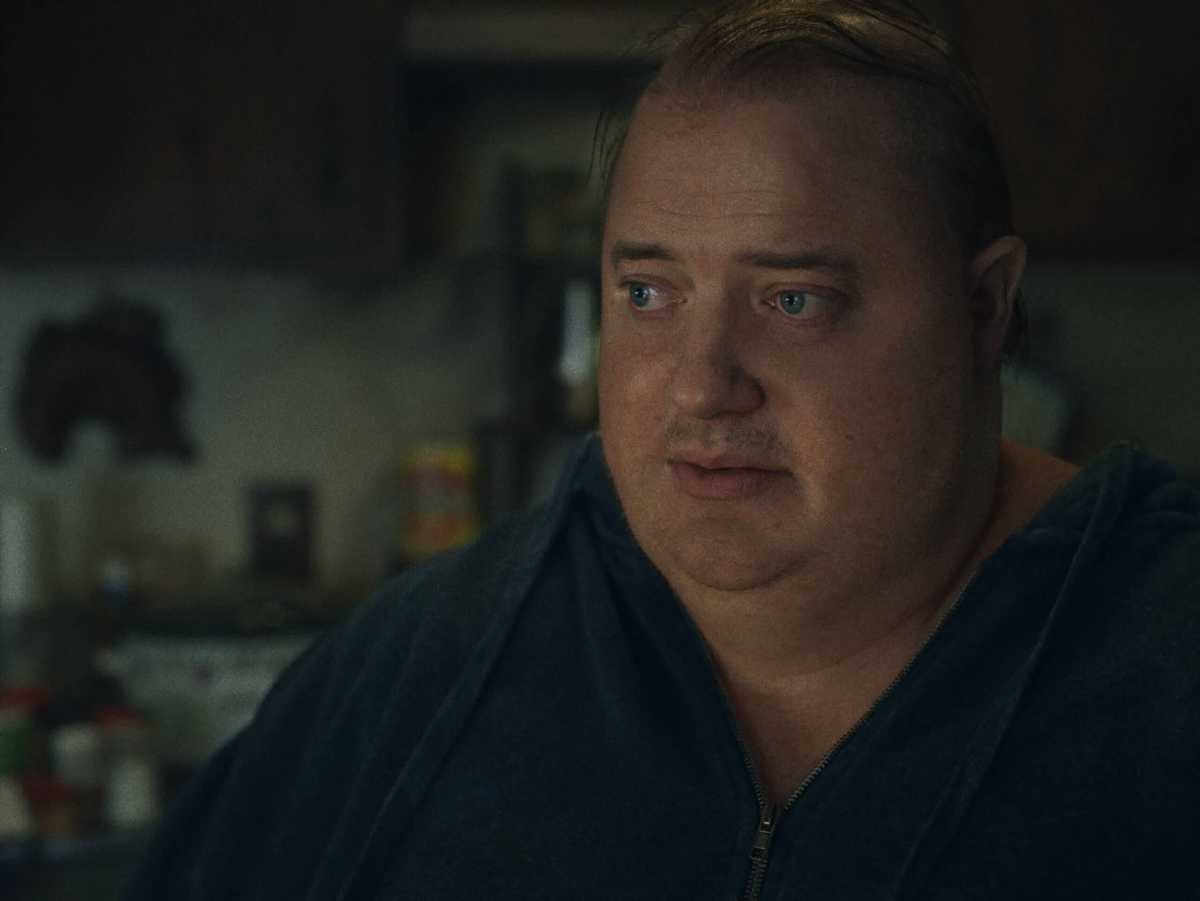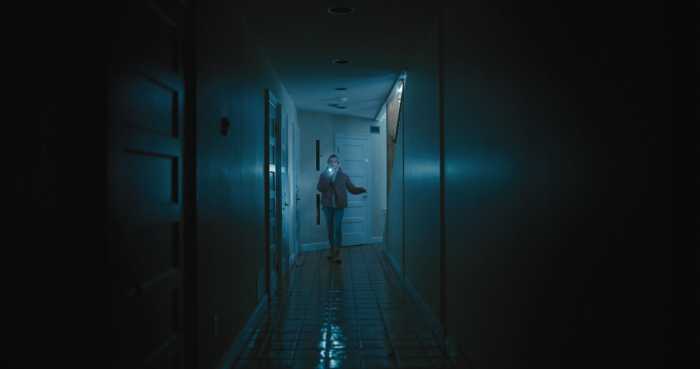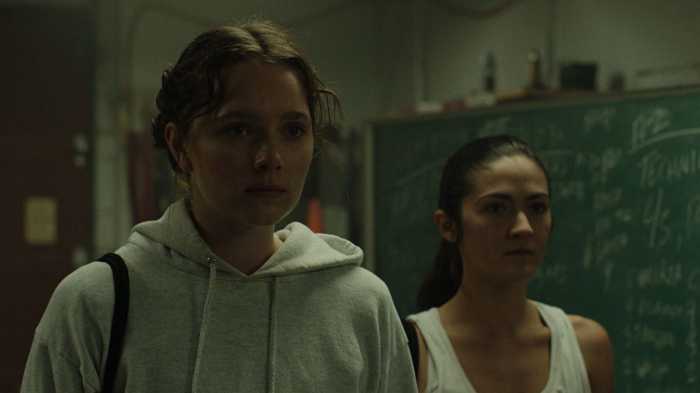Director Darren Aronofsky’s “The Whale” promises an Oscar nomination, if not a win, for its lead actor Brendan Fraser. After seeing the film, the buzz around his performance takes on a sinister air. Zach Baron’s 2018 GQ profile detailed the reasons behind Fraser’s move away from Hollywood’s spotlight. While an alleged sexual assault by Philip Berk, the former president of the Hollywood Foreign Press Association, in 2003 isn’t the only awful experience he’s suffered, it affected him deeply. (The HFPA gives out the Golden Globes each year.) A few weeks ago, Jezebel celebrated him as a “former himbo,” but Fraser now looks like an ordinary 53-year-old man, not a glamorous movie star.
To play Charlie, the obese gay protagonist of “The Whale,” Fraser put on pounds of rubbery prosthetics and completely buried his body in a fat suit. Fraser himself is heavy, but Charlie weighs at least three times as much. Aronofsky makes sure we don’t miss a single wobble of his latex neck and enormous quivering belly. (The film includes one of the few male full frontal nudity scenes that thinks it’s daring for not showing genitalia.) While Charlie has set out to eat himself to death, “The Whale” never misses an opportunity to show how disgusted it is by his body. In the second scene, he has a heart attack while masturbating to gay porn; the film presents someone with a body like his retaining a libido as literally dangerous. For extra humiliation value, Christian missionary Thomas (Ty Simpkins) walks in on him. When Charlie eats pizza or fried chicken, the camera catches every single drop of grease on his face. Aronofsky repeats his relish of the physical degradation of drug addiction from “Requiem for a Dream” with food this time. The impact of “The Whale” plays off our knowledge of Fraser’s image as a hunk in his 20s.
Charlie teaches college English classes online, refusing to show his face in Zoom sessions and reveal his weight to his students. A friend, Liz (Hong Chua), serves as a nurse, but although he’s close to death, he refuses to go to the hospital. Thomas and Liz turn out to have belonged to the same church, New Life, although she has rejected its apocalyptic ethos. After coming out as gay and leaving his ex-wife Mary (Samantha Morton) for a man who went on to die by suicide, he has been estranged from Mary and their daughter Ellie (Sadie Sink). Now 17 and a teenager trying overtime to be as angry as possible, she comes to visit him for the first time in nine years, mistakenly thinking he deliberately abandoned her.
Gay screenwriter Samuel Hunter, who adapted his own play, based some aspects of “The Whale” upon his own life. He says “I know many people who are big, happy, and healthy, but I wasn’t. I had a lot of unprocessed emotions from attending a fundamentalist Christian school where my sexuality came to bear in an ugly way, and that emerged in an unhealthy relationship with food.”
However, the experience that Hunter and Fraser brought to the film is belied by Aronofsky’s direction. If they had any interest in turning in a respectful depiction of a self-destructive fat man, it’s ruined by his customary coldness and edgelord tendencies. (When “The Whale” isn’t unpleasantly misanthropic, it turns sentimental on a dime.) Charlie’s suicidal urges have one simple cause, which is rarely true in life. (Unlike most real Americans who might have similar problems, his pleas that he can’t afford health insurance or incur medical debt turn out to be lies.) Alan’s death sent him down the same path. Fraser does his best with the role, but this comeback is painfully masochistic. Its reliance on his willingness to be objectified and the contrast with our memories of his appearance as a younger man (in real life) exploits the hell out of him.
As much as Aronofsky and Hunter might think of “The Whale” as one person’s story, it leaped into the middle of debates about body positivity, the use of fat suits, the casting of heterosexual actors in queer roles, and the ubiquity of films showing gay men as miserable and lonely. It’s hopelessly unprepared to deal with them in any thoughtful way; if it had, it wouldn’t have chosen this title. The script is clunky, doling out background information about the characters at regular intervals, while the parallels between “Moby Dick” and Charlie’s life would make any real English teacher ask for a second draft. Its idea of complexity is having people act like absolute jerks — even to the point of drugging each other and threatening to make false rape claims — for 90 minutes and then show a few redeeming qualities in the third act. The final scene is supposed to be an emotional revelation, but if it weren’t so grim and visually ugly, it would be laughable. The same could be said of the entire film.
“The Whale” | Directed by Darren Aronofsky | A24 | Opens Dec. 9th at the Angelika Film Center and Alamo Drafthouse Brooklyn



































